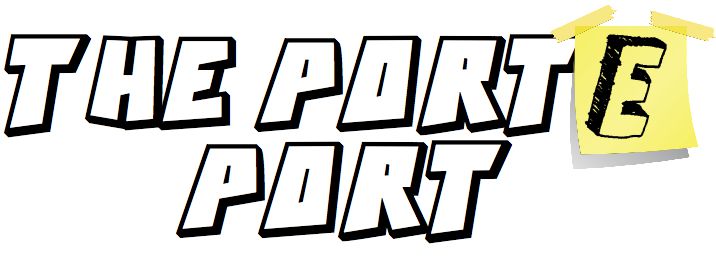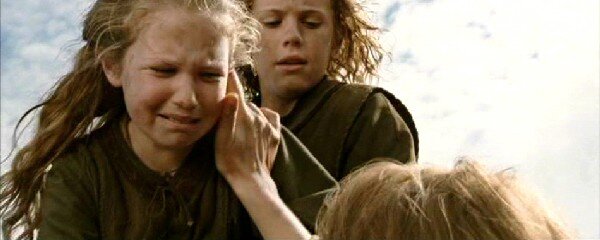Tolkien Tuesday: How to Write Impactful Villains
Does this villain make an impression on you?
There's this evil guy who wants to do bad stuff to the world. He makes war, and people die who oppose him. He creates darkness in the land.
Wow, that was actually hard to write.
Vague.
Boring.
Cliche.
But, this is pretty much most bad guys in epic fantasy stories.
Sometimes, we don't even get motivation for these sinister villains who wear capes made of shadows and laugh like they smoke three packs a day.
Look at the Emperor in Star Wars. Essentially, he's just evil. That's it.
I know, I'm sure there was something in a novelization that explained how he's actually a clone of some ancient Sith that was denied entrance to the Jedi Temple when he was six because somehow that's still too old to start training. So his hatred of the Jedi and love of the number six began!
Or something.
In the movies, though, he's a Sith Lord. The end.
So why do these super evil villains make such an impact when we don't get much of the backstory or motivation?
It's been a while since I've taken us into Tolkien's world, so let's dive back in.
This time, we look to the movies for answers.
Sauron is not a super great fella, and Saruman isn't much better. This we know.
Tolkien being Tolkien, developed entire books exploring the backstory behind the Lord of the Rings. It's no surprise we see more of Sauron specifically.
You can't info-dump too much in your narrative, though. You have precious little space to keep your readers invested. Hence, the extra books and appendix at the end of Return of the King.
In The Two Towers, Peter Jackson keeps this in mind by honing down Tolkien's plots to the most essential. It was the only way to make them work on the big screen.
The trick is still getting that emotional response from an audience.
How do you make one of your readers hate your big bad?
And I mean every time there's a scene with them, your readers get that knot in their stomach that won't let them stop reading because they just need to see what happens to this piece of sh…
You get it.
The answer lies with these two kids:
Odd. They don't seem that evil.
Oh, but they are. These kids are so malicious in the role they play here. Because they grab your heart and force you to see the real cost of evil.
They are the face of war.
Saruman is so terrible for making his jock brosef Uruk-hai. He's burning villages and ripping families apart. Yeah, pretty sad, I guess.
Then you see these two kids ripped away from their mother.
The little girl starts to cry as the boy has the horrible realization that he's suddenly responsible for their lives.
And the little girl keeps crying for her mama.
OK, Peter! My God, I'm crying too! You happy, you ass?
Showing the cost of war makes it real.
You can talk all day about how your evil dude is doing terrible things. You can go into some pretty grisly details too.
It won't have the same impact as seeing the emotion of a character. That's where things get personal.
It's the same principle as show don't tell.
Your reader has an emotional response to seeing specific images of characters in trauma. Even more so when it's someone relatable.
Let's break down what those kids represent in the snapshot we get of their lives.
They are hard-working folk, living on farmsteads in a small community. They want a simple life and have zero to do with war. Just like most of us. (Maybe not on farms, but most of us need to work for a living.)
The kids are torn from their mom. We all have parent figures in our life or at least people we feel at home with. We can imagine what being ripped away from that would feel like, even if we haven't experienced it.
We were also kids once. Can I imagine myself suddenly responsible for my younger sibling while being hunted by orcs? Last time I was on a horse, it nearly bucked me off because it was pissed at the asshole horse behind it.
Seeing this scene play out, that feeling of dread awakens in me again.
That's what you want. Now, Saruman's actions are much more personal, and I can see what the stakes are in a way that makes me care.
This doesn't have to be an elaborate part of the story. This kids scene lasts no longer than a minute. But we see how they feel about what's been lost.
Then we see these kids end up at Edoras right after Theoden has lost his own son.
So…is this a bad time?
This is done on purpose!
We are already emotionally connected with these kids. We see how emotionally connected Theoden is with the price of this war. Now those two links come together.
We see the kids enter Helm's Deep too. We know they're there during the attack, and it makes it more than a kick-ass battle.
There's something worth fighting for.
So what does this mean for your story?
Take your idea of your evil supervillain and the no good, very bad things that they do, and bring it down to earth.
There's something I've learned in copywriting that makes it a little more visual.
Take your idea out of the clouds and onto the street. People relate way more to what's here on the ground.
The destruction your bad guy causes has an emotional impact on a character somewhere in your story. Let's see it. We need to recognize the impact of the terrible actions on a specific person.
Really think about what the impact might be for people caught in the crossfire. Your reader needs that farmer's view and reaction.
Why?
So when your characters get their heart ripped out, your reader does too.
Hey, you're a geek, and you're awesome. But you want to write better stories. Join the newsletter and get more geeky writing advice from our favorite movies, shows, games, and books. Click below, and we will examine how the master writers did it so that we can do it too:










